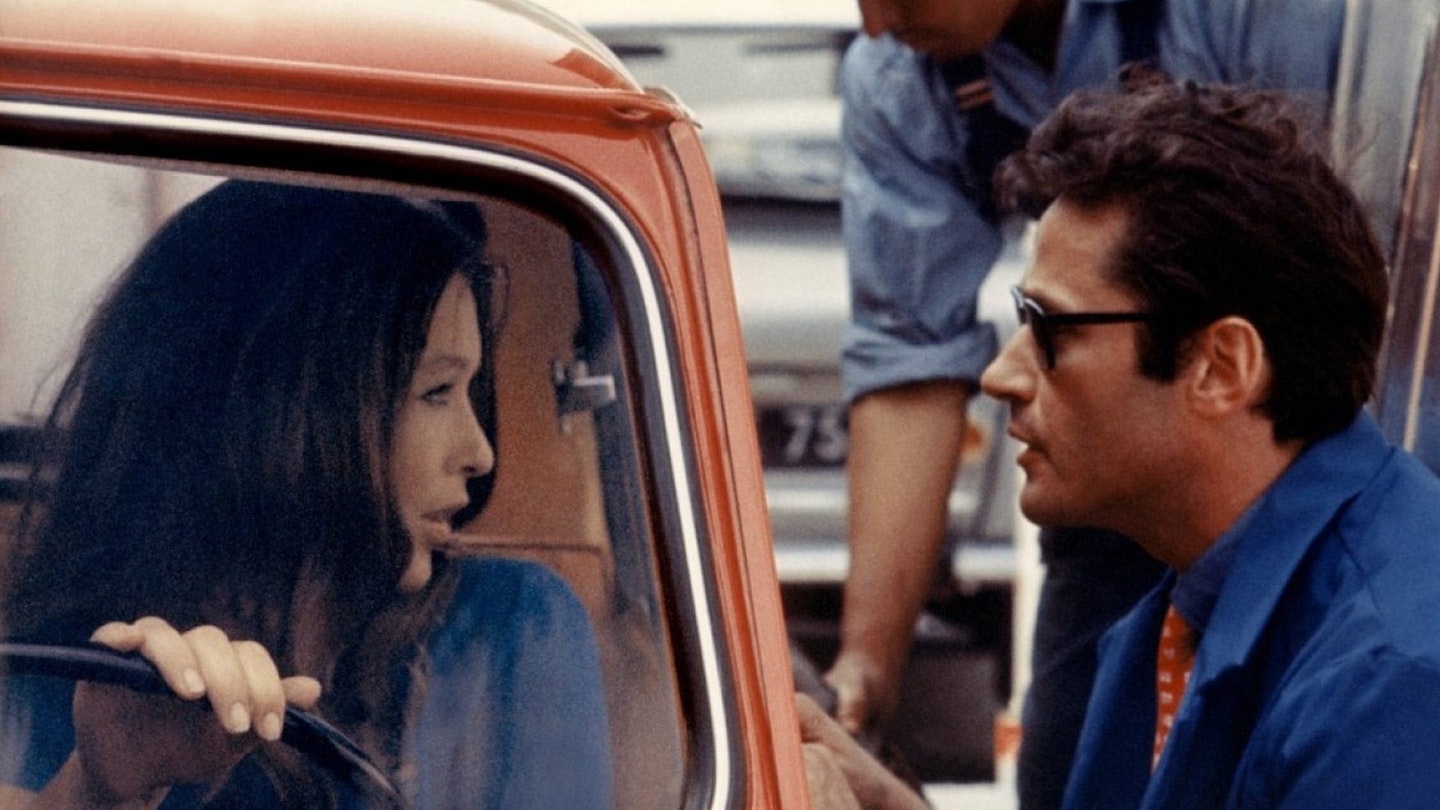Keen to accommodate former producer Georges de Beauregard's need for a quickie picture to extricate himself from a financial crisis, Jean-Luc Godard filmed this highly personal project simultaneously with the more disposable Made in USA. Ironically, this morning-afternoon division of labour echoed Juliette Janson's switch from housewife to hooker in this biting, yet powerfully reflective study of the dehumanising effect of the media, town-planning, consumerism, chauvinism and our own inability to change the world around us.
Godard drew his inspiration from a Catharine Vimonet article in Le Nouvel Observateur about the suburban prostitutes known as `les étoiles filantes.'. But he reinforced his collage approach by including ideas and images that often contradicted as well as complemented each other. Indeed, from the opening shot, Godard challenges the viewer to rethink the very nature of cinema by introducing Marina Vlady as an actress from one side of her window and then as Juliette Jeanson, wife, mother and whore, from the other.
But while both Marina and Juliette could claim to be the `Her' of the title, Godard is even more preoccupied by Paris, which he considers has similarly prostituted itself in the name of progress. Using shots of construction sites to emphasise the alienation of the citizenry, Godard attacks the city authorities who have permitted the creation of a Metropolis designed to entrap its inhabitants in a consumerist web whose comforts and conveniences lead only to debt and despair.
But he also puts the blame for this feeble surrender on to the pernicious forces of capitalism and American cultural imperialism, which are sugar-coated through advertisements that make tawdry and unnecessary products seem essential. Indeed, the US influence is everywhere - whether it's news of the escalating war in Vietnam on Robert's radio set or the cars, clothes and comestibles that Juliette desires - and it's impossible to discern whether Godard's red, white and blue colour scheme refers to the Tricoleur or the Stars`n'Stripes.
Yet, the film's most telling image is a contemplative close-up of a cup of coffee (riffed on by Scorsese in Taxi Driver), over which Godard confides his disillusion with society and himself.
